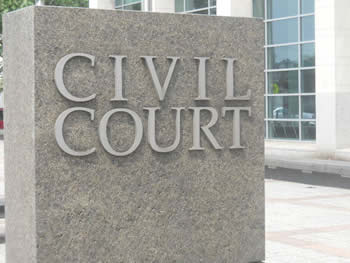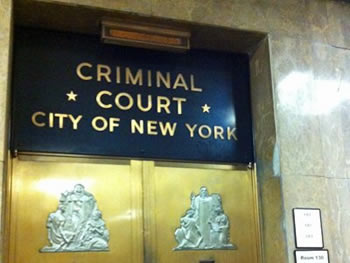Difference between Civil Court and Criminal Court
Key Difference: Criminal Law is the law that deals with criminals. Crime is basically defines as anything that is ‘threatening, harmful, or otherwise endangering to the property, health, safety, and moral welfare of people’. Civil Law is the law that deals with civil wrongs, and contracts, as well as the law of property. It can also be said that civil law is non-criminal law. Civil Law is tried in Civil Court, while Criminal Law is tried in Criminal Court.

Law is a necessary part of society. It helps maintain law and order. It also helps the citizens feel safe, while punishing those that break the laws and/or harm others. The law is a system of rules and regulations that are in place to govern acceptable behavior, so that others feel safe and there is order in society.
Law can be divided into two segments: Civil Law and Criminal Law. Criminal Law is the law that deals with criminals. There are the people that commit crimes and criminal offences. Crime is basically defines as anything that is ‘threatening, harmful, or otherwise endangering to the property, health, safety, and moral welfare of people’.
Civil Law, on the other hand, is the law that deals with civil wrongs, and contracts, as well as the law of property. It can also be said that civil law is non-criminal law. Instead of punishing people that harm others, civil law protects a person’s rights and duties.
As is obvious by the name Civil Law is tried in Civil Court, while Criminal Law is tried in Criminal Court. However, there are times that cases are resolved in arbitration and never make it to the Court of Law; this is especially true and more common in Civil Law. Still, both parts of the law are important to maintain the safety of the people.
A criminal court case is more serious than a civil court case as it usually includes crimes, where someone has hurt another. This includes murder, theft, burglary, abuse, rape, etc. Here the cases can be brought by the wronged party or by the government.
In civil court cases, the cases are commonly brought by one party against the other. These cases often include cases for eviction or foreclosure, a family case such as divorce or custody, consumer problems such as debt or bankruptcy, or when someone sues for money because of damage to property or personal harm.
 Additionally, the defendant in a criminal court must be proved guilty without a doubt and once found guilty, the person may spend time in jail and/or may have to pay a fine. In rare occasion, they may even be given the death penalty. Whereas, the defendant in a civil court need not be proved guilty without a doubt, but can be found guilty if there is enough substantiated proof, and once the person is found guilty they may have to either pay a monetary compensation to the plaintiff or be asked to start or stop something, such as stop their business.
Additionally, the defendant in a criminal court must be proved guilty without a doubt and once found guilty, the person may spend time in jail and/or may have to pay a fine. In rare occasion, they may even be given the death penalty. Whereas, the defendant in a civil court need not be proved guilty without a doubt, but can be found guilty if there is enough substantiated proof, and once the person is found guilty they may have to either pay a monetary compensation to the plaintiff or be asked to start or stop something, such as stop their business.
Comparison between Civil Court and Criminal Court:
|
|
Civil Court |
Criminal Court |
|
Part of |
Civil Law |
Criminal Law |
|
Scope |
One party (the plaintiff) who feels they were harmed brings a complaint against another party (the defendant). Sometimes the government is one of the parties. |
The government (the plaintiff) brings suit against (prosecutes) a person who they believe has broken the law (the defendant). |
|
Tries |
Civil suits that include when one person sues another person, a business or agency. This can cover a housing case such as for eviction or foreclosure, a family case such as divorce or custody, consumer problems such as debt or bankruptcy, or when someone sues for money because of damage to property or personal harm. |
Criminal suits that include when someone commits a crime, such as assault, robbery, murder, arson, rape and other kinds of crimes. |
|
Cases about |
|
|
|
Reasonable doubt |
Reasonable doubt is not required. A "preponderance of evidence" is enough in most cases. |
The guilt of the defendant must be proven beyond a reasonable doubt. |
|
Ruling |
The plaintiff can either ask for monetary relief, i.e. money in compensation, or equitable relief, where the plaintiff asks for the court to order the other party to do or not to do something. |
If the defendant is convicted, he or she may have to serve time in jail and/or pay a fine. |
Image Courtesy: commons.wikimedia.org, businessinsider.com









Add new comment